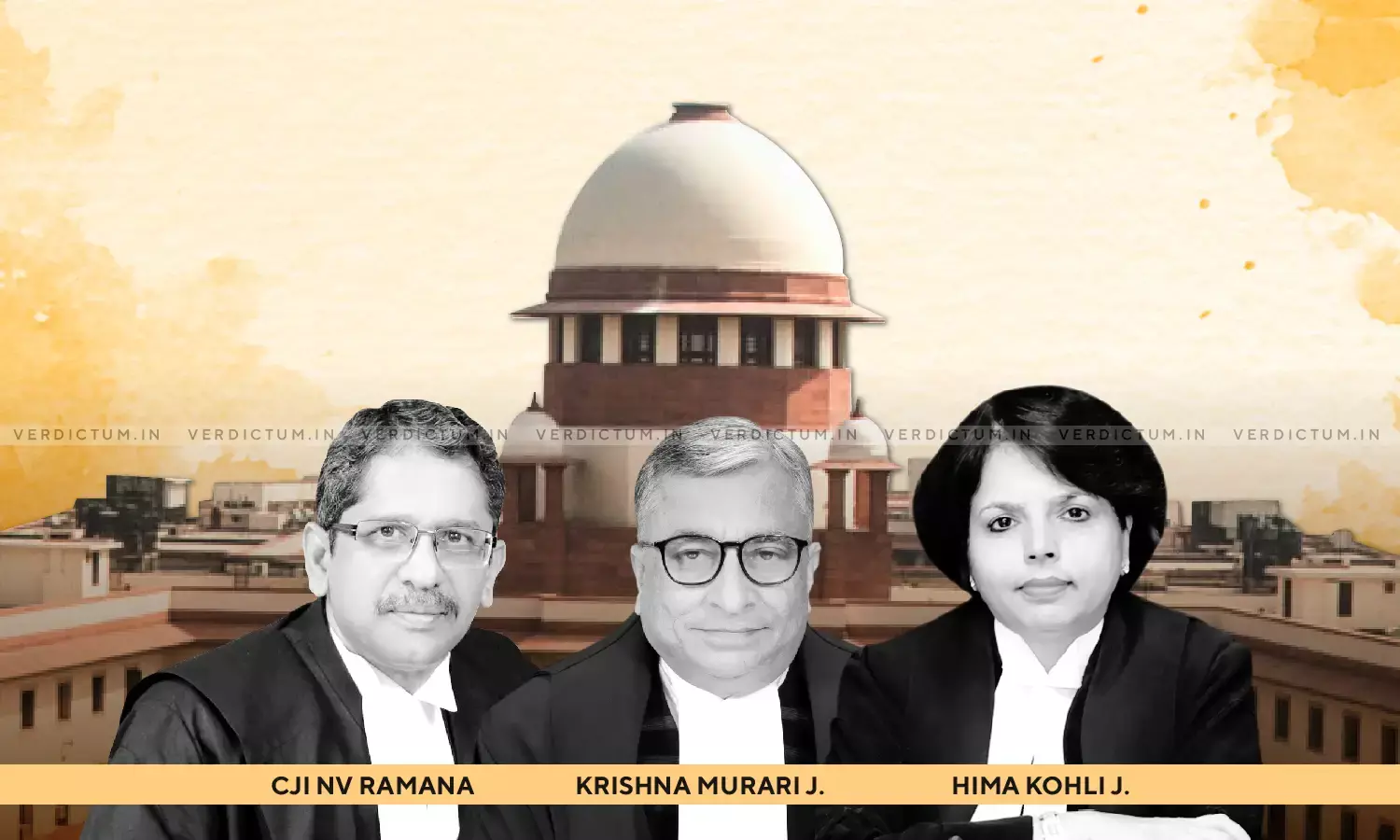Supreme Court Condemns Madras HC's Order Denying Copy Of Preliminary Report To Accused And Being Kept In Sealed Cover

A three-judge bench of Chief Justice N. V. Ramana, Justice Krishna Murari, and Justice Hima Kohli has strongly condemned the decision of the Madras High Court in S. P Velumani's case concerning Corruption charges.
In this case, the Appellant was a cabinet minister in Tamil Nadu from 2014. A complaint was lodged against the Appellant with the Directorate of Vigilance and Anti–Corruption (DVAC). The respondent also filed a Writ Petition before the High Court seeking a mandamus directing the Director, DVAC to register an FIR on the basis of the complaint lodged by him and to constitute an SIT.
The investigating agency had submitted a preliminary enquiry report in 2019, during the AIADMK government, citing that the investigation revealed no offence committed by the Appellant. In furtherance of the same, the State Government, relying on the said report, concluded that no cognizable offence was committed.
However upon a new Government under the DMK-alliance assuming power in May 2021, the State withdrew its earlier stance and stated that the investigation report had expressed certain irregularities. In light of this development, the High Court issued an order directing the state to pursue the investigation further.
Following the High Court's order, an FIR was lodged by the State. On that, the Appellant filed an application seeking a copy of the preliminary enquiry report. The High Court denied the request of the Appellant, citing that he would be entitled to receive a copy of the final report, once it is submitted and disposed of the PIL directing the DAVC to submit its final report within 10 weeks.
Dissatisfied with the decision of the High Court, the Appellants filed an appeal before the Supreme Court.
Issue – Whether the Appellant was entitled to receive a copy of the Preliminary Enquiry Report?
The Senior Counsel appearing for the Appellant contended that – The order of the High Court denying access to the report is not backed by any valid reasoning, as the State had not cited any documents to be privileged. The state cannot file FIR solely on the basis of the report, given, that the said reports disclosed no criminality.
Further, it was argued that the State could not have registered the FIR, on the basis of the order of the High Court and that the Appellant should have been given an opportunity to counter the allegations.
The Senior Counsel appearing on behalf of the State of Tamil Nadu contended that – there is no provision of law mandating the disclosure of the preliminary enquiry report.; However, the accused will be given the relevant documents at the time of framing charges.
It was also argued that the FIR being filed on the basis of a fresh enquiry and not solely on the basis of the preliminary enquiry report, the Appellant seeking a copy of the report becomes redundant.
The Apex Court noted -
"When the State has not pleaded any specific privilege which bars disclosure of material utilized in the earlier preliminary investigation, there is no good reason for the High Court to have permitted the report to have remained shrouded in a sealed cover"
On the High Court neither providing the Appellant with an opportunity to defend himself nor seeking a justification from the State for having turned the tables, the Court held that the - "The principles of natural justice demanded that the appellant be afforded an opportunity to defend his case based on the material that had exonerated him initially, which was originally accepted by the State"
In view of the above, the Supreme Court issued the following directions –
- High Court to supply a copy of the report, along with other documents to the Appellant.
- Writ Petition disposed of by the High Court, to be restored.
- High Court shall dispose of the cases on their own merit and the Appellant is at liberty to seek appropriate remedy before the High Court for quashing the FIR.
Accordingly, the Court disposed of the appeal.
Click here to read/download the Judgment

